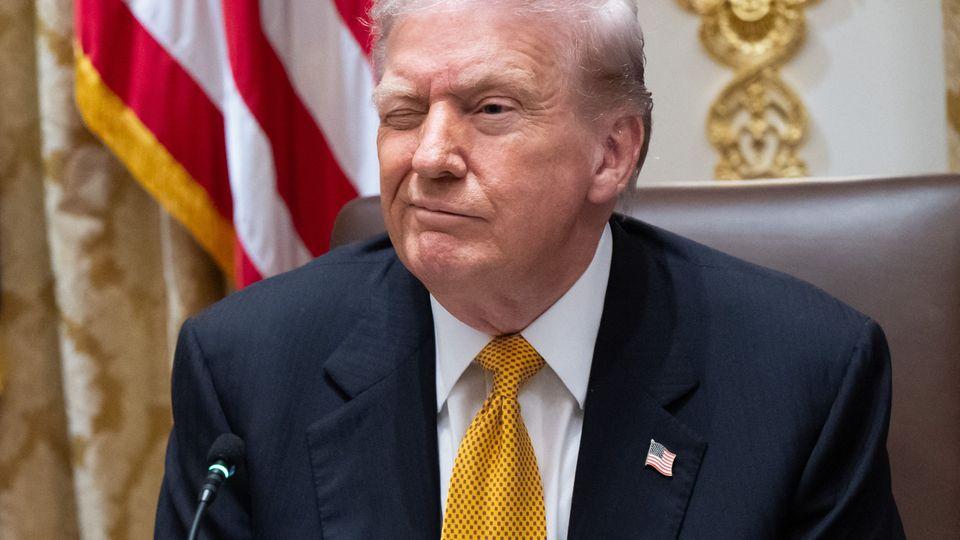How Donald Trump’s Leadership Reshaped American Politics and Society
Undermining Democratic Foundations: A Shift in Governance Norms
Donald Trump’s presidency marked a notable deviation from traditional democratic values, introducing a period characterized by a diminished respect for institutional checks and balances. His persistent denunciations of mainstream media as “enemies of the people” significantly weakened public confidence in the press, a cornerstone of democratic society. Furthermore, his unfounded allegations of electoral fraud and reluctance to endorse peaceful power transitions challenged the core mechanisms that uphold American democracy. These developments fostered a pervasive skepticism toward democratic institutions, effects of which continue to reverberate beyond his administration.
This erosion extended to political actors and institutions, many of whom prioritized loyalty over accountability. This realignment manifested in several ways:
- Republican leaders’ hesitance to confront misinformation originating from the presidency
- Overlooking ethical violations for political advantage
- Intensified partisan divisions fueled by provocative rhetoric, weakening social unity
Below is an overview of democratic principles strained during this era:
| Democratic Principle | Impact During Trump Administration |
|---|---|
| Commitment to Truth | Frequent dissemination of false or misleading information |
| Freedom of the Press | Delegitimizing critical journalism as adversarial |
| Integrity of Elections | Baseless claims undermining election results |
| Peaceful Transfer of Power | Resistance to conceding electoral defeat |
Global Perceptions: The Decline of America’s International Standing
On the world stage, the United States’ reputation has experienced a noticeable decline amid the turbulence of divisive leadership and unpredictable policy shifts. Longtime allies have expressed growing reservations about America’s reliability and adherence to shared values. This shift is not a fleeting diplomatic challenge but signals a fundamental realignment in global partnerships and trust. Many nations are now diversifying their alliances, reflecting a cautious approach to international relations.
Key indicators of this reputational shift include:
- Diplomatic Challenges: Allies openly questioning U.S. commitment to multilateral treaties and global norms.
- Economic Uncertainty: Trade partners hesitating amid erratic policy changes, impacting investment flows and market confidence.
- Reduction in Soft Power: Declines in cultural diplomacy and educational exchanges, diminishing America’s influence abroad.
| Metric | Before Trump (2016) | Current (2024) |
|---|---|---|
| Global Favorability Rating | 60% | 38% |
| Strength of Alliances | Robust | Moderate to Weak |
| Trade Relationship Stability | Stable | Volatile |
Bridging Divides: The Role of Civic Education in Healing Political Polarization
To mend the deepening political rifts, the United States must prioritize comprehensive civic education that empowers citizens with a sophisticated grasp of democratic principles. Such education can serve as a unifying force by nurturing critical thinking, enhancing media literacy, and fostering empathy for diverse perspectives. Educational institutions and community initiatives should focus on cultivating informed engagement, encouraging individuals to evaluate information critically and participate in constructive dialogue rather than retreating into ideological silos.
Essential components for effective civic education include:
- Media Evaluation Skills: Training learners to detect bias, propaganda, and misinformation.
- Constructive Communication: Encouraging respectful debate and active listening.
- Historical Awareness: Providing context on the development of political systems and conflicts.
- Community Involvement: Promoting engagement in local governance and volunteer activities.
| Focus Area | Positive Outcome |
|---|---|
| Media Literacy | Decreases vulnerability to false information |
| Dialogue Skills | Reduces hostility and promotes understanding |
| Historical Context | Enhances comprehension of current political divides |
| Community Engagement | Builds social trust and collective identity |
Rebuilding Confidence: The Imperative of Transparent Leadership and Accountability
Restoring faith in American governance necessitates a profound commitment to transparency and responsibility. In the aftermath of years marked by opacity and divisiveness, citizens increasingly demand openness regarding policy-making, financial disclosures, and legislative priorities. Genuine transparency transcends sporadic media briefings; it requires continuous, candid communication that acknowledges both successes and shortcomings.
Embedding accountability into government operations involves:
- Independent oversight bodies conducting regular evaluations and public reporting
- Strict ethical standards mandating proactive disclosure of conflicts of interest
- Unrestricted access to government documents and data for public examination
- Interactive civic platforms enabling constituents to raise concerns and receive thoughtful responses
| Component | Effect | Illustration |
|---|---|---|
| Transparency | Builds public trust and curbs misinformation | Live publication of executive decisions |
| Accountability | Prevents corruption and enhances credibility | Judicial review independent of political influence |
Reestablishing America’s stature globally depends on leaders who embrace responsibility and foster openness. Only through such efforts can the divisions and cynicism of recent years be overcome, paving the way for a more cohesive and optimistic future.
Conclusion: Navigating the Path Forward
Donald Trump’s period in office has undeniably reshaped the American political and cultural environment, often viewed as a departure from the ideals of unity and respectful discourse. Whether as a reflection or a driver of deeper societal fractures, the deterioration of public dialogue during his leadership highlights the urgent need for healing. Moving forward, the nation faces the critical task of bridging divides and rekindling a shared commitment to democratic values that transcend partisan boundaries.













